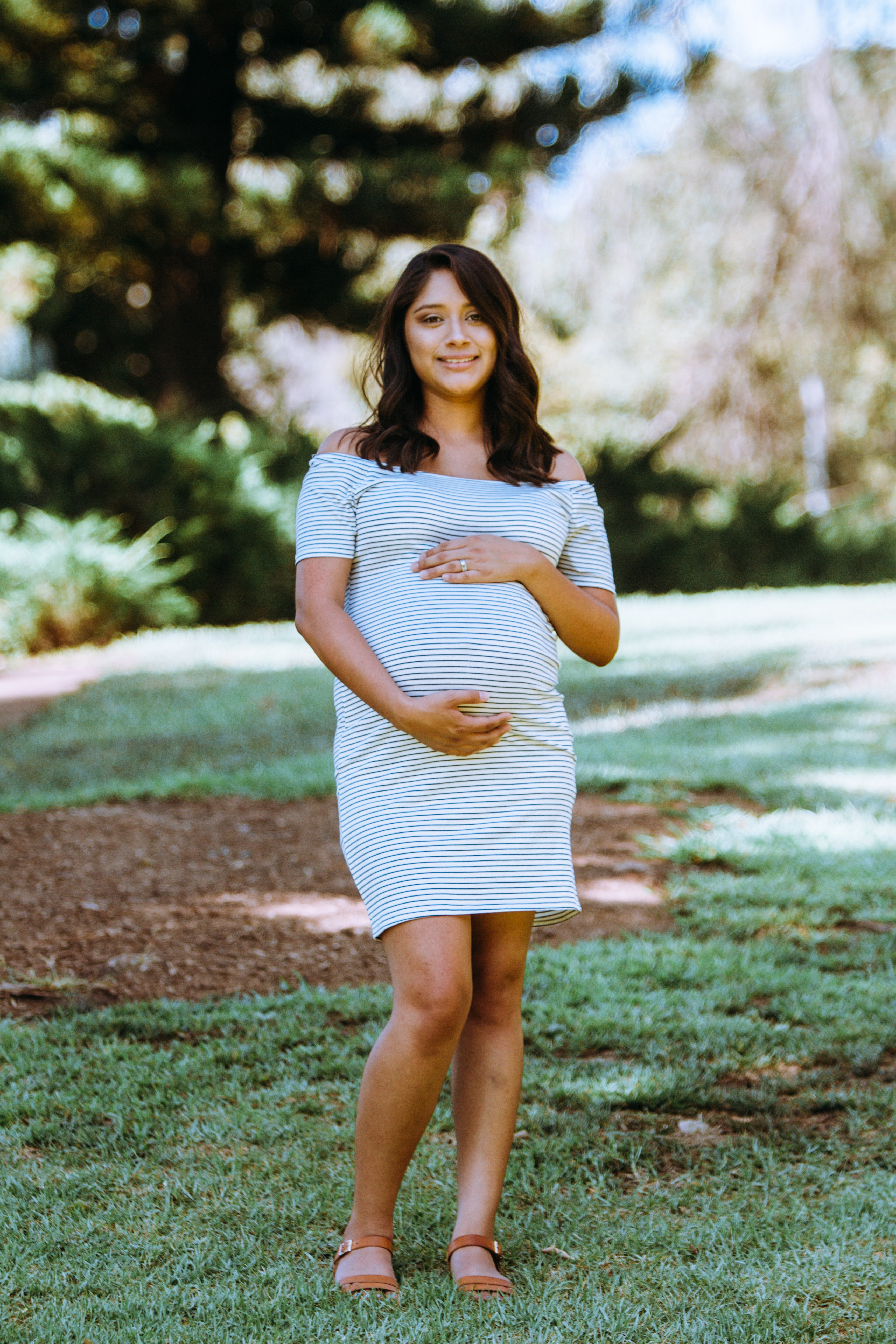If you plan to have kids, you may need to watch your biological clock.
Despite the efforts of the state in promoting work-life harmony, some may still find it hard to take time from their hectic work schedules to date. Hence, ‘no time to date’ becomes a regular statement, and plans for marriage or starting a family will consequently be postponed.
For some women, it is only until they approach their 40s that they start worrying that their biological clocks are ticking.
Dr Cynthia Kew talks about the chances of having a baby later in life, possible risks that may arise from it and tips for having a healthy pregnancy.

What are my chances of having a baby when I hit 40?
The chances of pregnancy decline with the increase of a woman’s age. 75% of women at 30 years of age will conceive after trying for one year, as compared to 45% of women at 40 years of age.
As a woman reaches her mid to late 30s, her eggs will decrease in quality and quantity. An older woman’s eggs are also not as easily fertilised compared to that of younger women.
Even with the use of assisted reproductive technologies like in vitro fertilisation (IVF), success rates of these procedures decline with increasing age of the woman. This explains the observation that although assisted reproduction is more prevalent, the fertility rate is not markedly increased among women aged 40 to 44.
What are the risks of pregnancy after 40?
Some problems for both mother and child are more likely in later pregnancies. These include:

For The Mother
Pregnancy Loss
Older women are at a higher risk for miscarriage in early pregnancy. The risk is around 25% in women above 35 years of age compared to 12% in women below 30 years of age. The risk reaches more than 90% in those aged above 45.
Pregnancy In The Wrong Location (Ectopic Pregnancy)
An ectopic pregnancy is a pregnancy outside of the womb. Women above the age of 35 are four to eight times more likely to have an ectopic pregnancy compared to younger women.
This higher risk of ectopic pregnancy is likely due to an accumulation of risk factors over time, such as pelvic infection and problems with the fallopian tubes. Symptoms of this condition include abdominal pain or abnormal bleeding, but it can also come without symptoms.
Usually, treatment with an injection or surgery will be required as it can cause internal bleeding if left alone.
Multiple Pregnancies
The chances of developing twins or other multiple pregnancies increase with age. Multiple pregnancies are associated with higher likelihood of problems to both the mother and the baby and require close follow-up throughout the pregnancy.
Gestational Diabetes During Pregnancy
Women over the age of 40 are three to six times more likely to develop gestational diabetes (diabetes that develops in pregnancy) compared to women aged 20 – 29. The risk of gestational diabetes in the general population is 3%, compared to 7 – 12% in women over 40.
Gestational diabetes in pregnancy poses a higher risk for potential complications for the mother and the baby during the pregnancy as well as during the delivery process.
High Blood Pressure During Pregnancy
The risk of pregnancy-induced hypertension is higher in older mothers. This leads to a higher risk of developing a condition called pre-eclampsia, which is a pregnancy complication characterised by high blood pressure and signs of damage to another organ system, often the kidneys.
Left untreated, pre-eclampsia can be potentially life-threatening to the mother and baby.
Complications From Pre-Existing Medical Issues During Pregnancy
With the increase in age, the likelihood of obesity or of having medical problems, such as diabetes, hypertension, and heart problems, is higher. With any pre-existing medical problem, the pregnancy would need monitoring for worsening of the condition, and for complications to the pregnancy.
There may be increased rates of hospitalisation, caesarean delivery and preterm birth.

For The Baby
Chromosomal Abnormalities In The Baby
The risk of all chromosomal abnormalities increases with age of the woman, especially after 35 years of age. This includes Down syndrome, which is the most common chromosomal abnormality detected in pregnancy.
The risk of a Down syndrome pregnancy at different maternal ages are:
At 30 years of age: 1 in 950.
At 35 years of age: 1 in 350.
At 40 years of age: 1 in 100.
At 45 years of age: 1 in 30.
In view of the increased risk, you may want to speak to your obstetrician about screening for chromosome abnormalities.
Non-Chromosomal Abnormalities (eg. heart defects)
The risk of heart defects in babies of women above 40 is almost four times that of women 20 – 24 years of age. The risk of clubfoot (inward turning of the feet at the ankle) and diaphragmatic hernia (a hole in the diaphragm that allows the organs in the abdomen to move into the chest cavity) also increases. Your obstetrician will arrange a detailed scan to look out for these defects.
Stillbirth
At maternal age of 40 – 44 years, the risk of stillbirth is three times that of women between 25 – 29 years of age. The baby will thus be monitored more closely toward the end of the pregnancy.
Preterm Birth Or Low Birth Weight
Preterm babies at birth may have problems with breathing due to inadequate development of the lungs. They are also more susceptible to other early problems such as infection, bleeding in the brain and problems with regulation of temperature and glucose levels.
Also, premature infants are more likely to develop hearing and vision problems, as well as cerebral palsy especially if they are born before 32 weeks of gestation.

Are there any benefits being pregnant after 40?
In spite of all the risks mentioned above, there are some advantages to parenting when one is older.
In one study, it was observed that the older a woman is, the better the health and development of her child up to five years of age. The outcomes that were studied were unintentional injuries, immunisation rates, language development and social development. Children of older parents have described that they receive more devotion, patience and attention from their parents, as well as benefit from their parents’ emotional and financial stability.

Tips For Pregnancy At 40
See a gynaecologist to screen for existing medical problems and ensure that you are in your best state of health before trying for a baby. Your gynaecologist can also monitor your progress and discuss investigations and treatment options including assisted reproductive techniques like IUI (intrauterine insemination) or IVF if you have difficulty getting pregnant.
- Adopt a healthy lifestyle by exercising and eating right and aim to achieve a normal weight prior to pregnancy.
- Avoid unhealthy lifestyle choices such as smoking or excessive drinking of alcohol.
- Take folic acid when trying for a baby to reduce the risks of abnormalities of the spinal cord or brain development in the baby.
- Once you realise you are pregnant, you should book a visit with the obstetrician so that a scan to confirm the location of the pregnancy can be done.
- Attend follow-up appointments as scheduled by your obstetrician to allow for close monitoring of baby’s development and detection of any complications that may occur.
Trusted health tips tailored for Asia, by Singapore’s largest academic medical centre, SingHealth HealthXchange.sg



